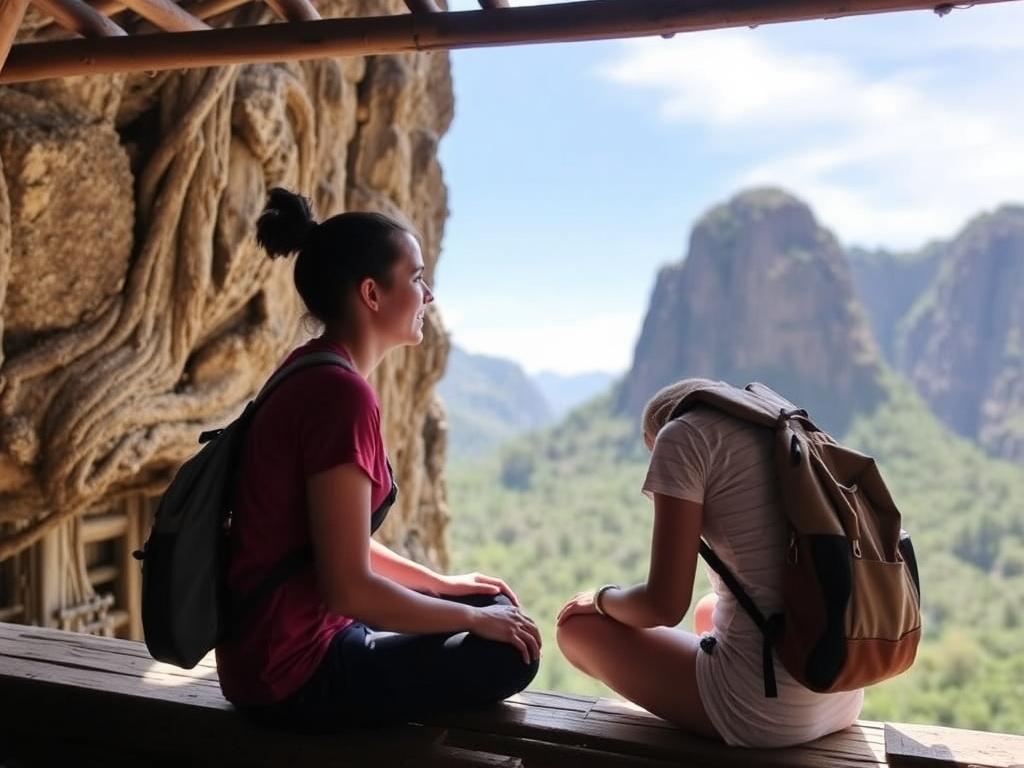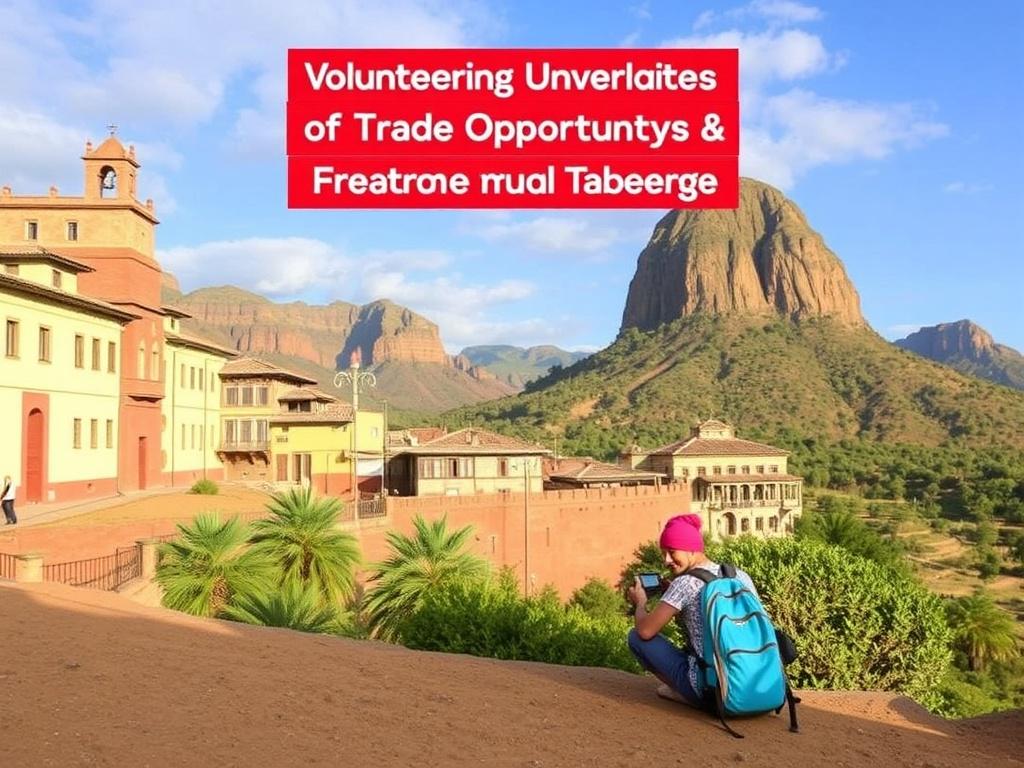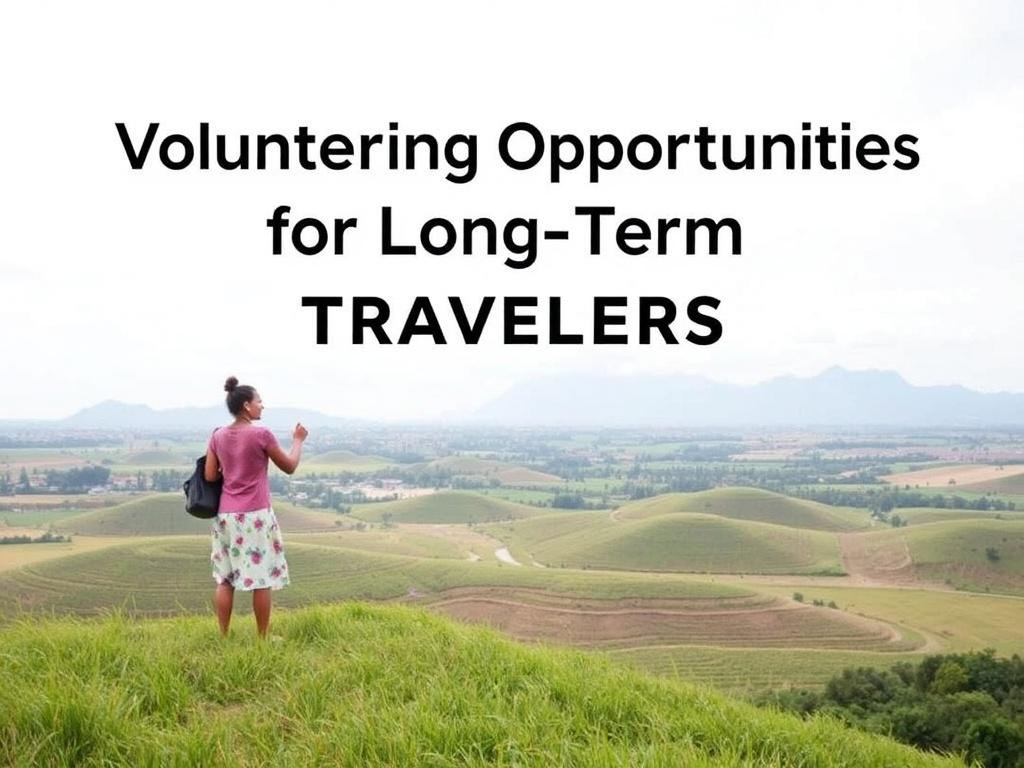Embarking on a long-term travel adventure is an exciting prospect that promises new cultures, breathtaking landscapes, and unforgettable experiences. Yet, for many travelers, the desire to give back and make a meaningful contribution during their journey grows stronger with every mile traveled. Volunteering opportunities for long-term travelers offer the perfect blend of exploration and purpose, allowing you to connect deeply with local communities while gaining unique insights beyond the typical tourist trail. Whether you’re passionate about environmental conservation, education, or community development, volunteering transforms your travel into a truly enriching experience.
If you’re interested in adding value to your travels, it’s important to understand the range of volunteering opportunities available and how these can fit with your itinerary, skills, and interests. Today, we will explore different types of volunteering for long-term travelers, tips for finding reputable programs, and how to prepare for these experiences. By the end of this article, you’ll be ready to embark on a journey that not only broadens your horizons but leaves a positive impact on the world.
Why Choose Volunteering Opportunities for Long-Term Travelers?
Volunteering during your travels offers more than just a chance to lend a hand—it provides a unique, immersive way to experience a destination. When you volunteer, you gain access to authentic cultural exchanges that go far deeper than sightseeing. You live and work alongside locals, learn new skills, and develop a sense of global citizenship.
Many long-term travelers find that volunteering helps break down stereotypes and build empathy. Engaging directly with communities, you witness challenges and triumphs firsthand, which often leads to a profound personal transformation. Moreover, volunteering can enhance your resume or backpacking story with practical experience and heartwarming memories.
Here are several compelling reasons why volunteering opportunities are a top choice for long-term travelers:
- Meaningful cultural immersion
- Skill development and practical experience
- Building lifelong friendships
- Contributing to community development
- Environmental preservation
- Expanding personal growth and global awareness
Whether you want to teach English in Southeast Asia, protect wildlife in Africa, or support reforestation projects in South America, volunteering provides a flexible and impactful way to engage with your travel destinations.
Types of Volunteering Opportunities for Long-Term Travelers
Volunteering opportunities come in all shapes and sizes, each offering different experiences, time commitments, and skill requirements. It’s important to assess what you want out of your volunteering experience and how it aligns with your travel plans.
1. Environmental Conservation
If you’re passionate about nature and sustainability, environmental volunteering projects allow you to make a direct impact on protecting ecosystems. Projects often include activities such as:
- Wildlife monitoring and rescue
- Marine conservation and coral reef restoration
- Tree planting and reforestation
- Beach clean-ups and waste management
For example, many volunteers visit Costa Rica to join turtle conservation efforts or travel to Madagascar to help protect endangered lemurs. These projects typically require physical stamina and a genuine interest in environmental issues.
2. Teaching and Education
Volunteering as a teacher or assistant in classrooms abroad is one of the most popular options for long-term travelers. Many communities welcome foreign volunteers to help with:
- English language instruction
- Basic computer skills
- Arts and sports programs
- Special needs education support
Countries like Vietnam, Peru, and Tanzania offer numerous teaching opportunities where volunteers can work in schools, community centers, or orphanages. Teaching roles often require patience, creativity, and the ability to adapt to different educational environments.
3. Community Development and Health
Some travelers prefer projects focused on improving local infrastructure, healthcare, or social services. Volunteering in community development might mean helping to build wells, support maternal health programs, or run workshops on hygiene and nutrition.
Typical assignments include:
- Construction and renovation
- Public health education
- Working with women’s empowerment groups
- Childcare and support for vulnerable populations
These volunteering opportunities can be highly rewarding but may require specific skills or a background in social work or medical fields.
How to Find the Right Volunteering Opportunities for Long-Term Travelers

Finding suitable volunteer programs involves research and self-reflection. With thousands of organizations and projects worldwide, it’s easy to feel overwhelmed. To ensure a positive experience, consider these important steps:
Research Reputable Organizations
Start by looking for well-established volunteer organizations with transparent practices. Read reviews and testimonials from past volunteers, and check if programs have partnerships with local communities or governments. Websites such as Volunteer World, Go Overseas, and Workaway can be great resources to connect with verified opportunities.
Consider Your Skills and Interests
Before applying, evaluate what skills you possess and what you are passionate about. Are you comfortable working with children? Do you have a background in healthcare, teaching, or manual labor? Matching your abilities with the project’s needs ensures that you’ll contribute effectively and enjoy your role.
Evaluate the Time Commitment
Length of stay expectations vary among programs—some may require a minimum of two weeks, while others accept volunteers for months. Since you are a long-term traveler, look for opportunities that fit your itinerary flexibility. Keep in mind that shorter commitments might not allow you to see the full impact of your work.
Budget and Accommodation
While many volunteering opportunities require fees to cover accommodation, food, and project costs, some are unpaid and require volunteers to provide their own resources. Make sure you understand the financial commitment involved and what kind of living arrangements are offered. Some programs include shared volunteer housing, while others might ask you to arrange your own.
Preparing for Your Volunteering Experience
Once you’ve selected a volunteering opportunity, it’s important to prepare practically and mentally to get the most out of your experience. Here are some key considerations:
| Preparation Area | Tips for Long-Term Travelers |
|---|---|
| Health & Vaccinations | Visit a travel clinic to update vaccinations and obtain medications relevant to your destination (e.g., malaria prophylaxis). |
| Visa & Documentation | Check visa requirements for volunteering in your chosen country and prepare all necessary paperwork in advance to avoid legal hassles. |
| Packing Essentials | Pack versatile clothing, durable shoes, and any tools or materials suggested by the program. Include items for comfort, like insect repellent and sunscreen. |
| Cultural Sensitivity | Learn about local customs, etiquette, and basic language phrases to communicate respectfully and effectively with community members. |
| Expectations & Flexibility | Keep an open mind about living conditions and work challenges. Volunteering can be demanding but also deeply rewarding. |
Preparing thoroughly ensures a smoother transition into your volunteer role and helps you to build strong relationships with the local community.
Tips for Getting the Most Out of Volunteering Opportunities for Long-Term Travelers
Volunteering abroad is a two-way street—you give your time and effort, and in return, you gain invaluable life experiences. Here are some tips to maximize the benefits of your volunteering adventure:
- Engage Actively: Be proactive, ask questions, and take initiative to deepen your involvement in projects.
- Build Relationships: Spend time getting to know locals beyond the work environment to better understand their culture and perspectives.
- Stay Patient and Adaptable: Projects may encounter unexpected hurdles. Embrace flexibility and patience as part of the learning process.
- Reflect and Document: Keep a journal or blog to reflect on your experiences and insights, helping you cherish memories long after you leave.
- Share Your Skills: Offer unique talents that might benefit the project or community, whether digital skills, arts, or gardening knowledge.
- Practice Ethical Volunteering: Avoid roles that disempower locals or exploit vulnerable populations. Always prioritize respectful, sustainable involvement.
By following these guidelines, you not only enrich your travel but leave behind a positive legacy.
Popular Destinations for Volunteering Opportunities for Long-Term Travelers

Long-term travelers often seek destinations that offer vibrant volunteering scenes, reasonable costs of living, and welcoming communities. Here’s a quick overview of some top countries known for diverse and impactful volunteer options:
| Country | Popular Volunteering Sectors | Highlights |
|---|---|---|
| Thailand | Teaching, wildlife conservation, community development | Affordable living, rich culture, strong volunteer networks |
| Kenya | Wildlife protection, education, healthcare outreach | Experience wildlife safaris, engage with Maasai communities |
| Peru | Community projects, teaching, environmental work | Stunning Andes landscapes, indigenous cultural immersion |
| Vietnam | Teaching English, rural development, orphanage support | Dynamic cities blend with tranquil countryside |
| South Africa | Wildlife conservation, youth mentorship, healthcare | Diverse ecosystems, strong NGO presence |
These destinations offer a variety of volunteering opportunities that long-term travelers can adapt to their schedules and interests.
Overcoming Common Challenges in Volunteering for Long-Term Travelers

Volunteering abroad is a rewarding path, but it can also be fraught with challenges. Anticipating and addressing these can help you maintain a positive outlook throughout your experience.
Cultural Differences and Communication Barriers
Different languages and customs can create misunderstandings. Approach these with patience and willingness to learn. Using translation apps or enrolling in basic language classes before arrival can be invaluable.
Emotional Challenges
Volunteers sometimes face emotional strain seeing poverty or hardship up close. It’s important to practice self-care, maintain realistic expectations, and seek support when needed.
Logistical Issues
Accommodation quality, transportation, and work conditions might be basic or unpredictable. Staying flexible and having contingency plans ensures that you remain adaptable.
Sustainability and Impact Concerns
Ensure your volunteering role supports long-term community goals instead of creating dependency. Research the project’s mission carefully and choose programs emphasizing empowerment and sustainability.
Staying Connected: After Your Volunteering Experience
After completing your volunteering stint, the journey doesn’t have to end. Many long-term travelers maintain connections through:
- Staying in touch with communities and fellow volunteers
- Continuing support through fundraising or awareness campaigns
- Applying learned skills and perspectives to your daily life at home
- Promoting ethical volunteering through blogs and social media
These ongoing efforts not only honor your time abroad but amplify the positive change sparked by your contributions.
Conclusion
Volunteering opportunities for long-term travelers open the door to a rewarding blend of adventure, learning, and meaningful impact. By choosing projects aligned with your passions and skills, thoroughly researching organizations, and preparing mindfully, you set yourself up for an unforgettable journey that enriches both you and the communities you serve. Challenges are natural, but with patience and cultural sensitivity, volunteering can transform your travel experience into a powerful act of global citizenship. Whether you find yourself planting trees in Costa Rica, teaching English in Vietnam, or supporting wildlife in Africa, your journey will be more than a vacation—it will be a meaningful contribution to a better world. So pack your bags, open your heart, and get ready to explore not just new places, but new ways to make a difference.









